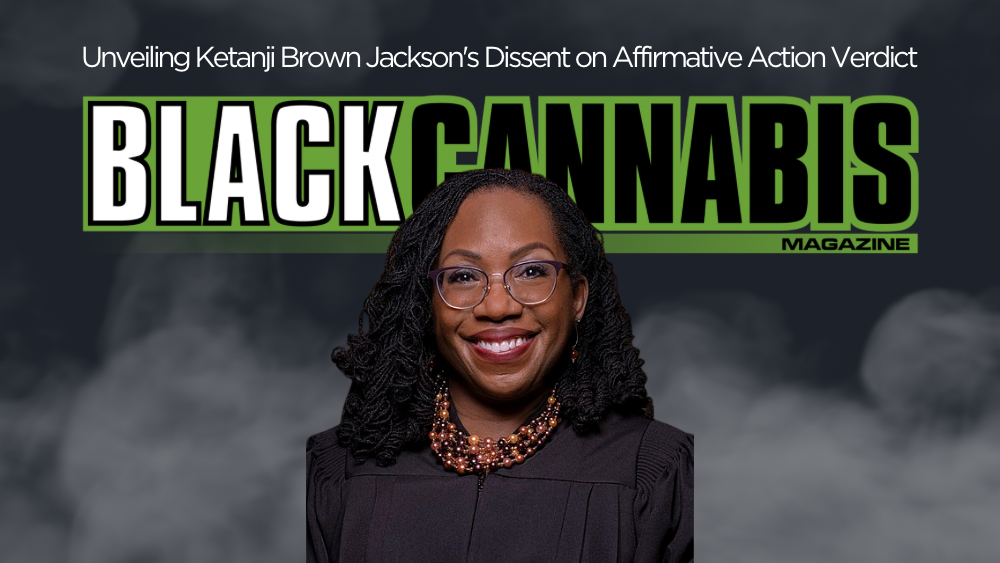Ketanji Brown Jackson’s Dissent: A Critique of ‘Colorblind’ Conservatism
On June 29, 2023, a momentous decision emerged from the Supreme Court. In a 6-3 and 6-2 vote, the court ruled that race-conscious admission policies at Harvard College and the University of North Carolina (UNC) were unconstitutional, marking a stunning end to affirmative action in higher education.
Authored by Chief Justice John Roberts, the majority opinion resonated with conservatism, suggesting that universities had been wrongly associating an individual’s identity with the color of their skin, violating the Equal Protection Clause of the Constitution. Not all justices agreed, though. In a separate dissent, Justice Ketanji Brown Jackson challenged the majority’s decision, pushing back against this interpretation of ‘equality’.
Ketanji Brown Jackson’s Dissent: A Clarion Call for Real-Life Circumstances
Justice Jackson, the first Black woman to sit on the Supreme Court, was unflinching in her criticism of the court’s ruling. Jackson argued that the majority was “pitifully perceiving itself as the sole vanguard of legal high ground,” while in reality, their stance was neither constitutionally compelled nor rooted in critical real-life circumstances.
Jackson accused the Court of launching “a dismally misinformed sociological experiment,” signaling the failure to understand the nuanced implications of race in American society. In her view, a race-blind admissions policy not only halted the generational project of diversity fostered by American universities but also neglected the lived experiences of individuals who navigate the world through the lens of their racial identities.
Overturning Precedents, Ignoring Past Decisions
The ruling contradicted past Supreme Court decisions, such as the Grutter v. Bollinger case in 2003 that allowed schools to consider race during admissions. By rejecting the precedent of race-conscious admissions, the Court jeopardized longstanding decisions that have shaped American life, significantly impacting diversity at elite educational institutions.
An Affirmative Action Legacy, Now in Jeopardy
Affirmative action policies have been in place since the 1960s to counter racial discrimination. Critics have long viewed it as discriminatory against non-minorities, while proponents believe that race should be considered as part of a holistic evaluation of candidates. The recent Supreme Court verdict, however, has drastically shifted the trajectory of affirmative action, sparking debates across the nation.
Impact of The Decision: Harvard and UNC’s Response
Harvard and UNC, while affirming their commitment to student diversity, announced their intention to comply with the court’s ruling. UNC Chancellor Kevin Guskiewicz, stated that the school “continues to make an affordable, high-quality education accessible to the people of North Carolina and beyond.” Harvard, while expressing disappointment, said it would aim to preserve its essential values, “consistent with the Court’s new precedent.”
The Way Forward: Dialogues and Debates
The affirmative action verdict is likely to instigate widespread discussions on race and diversity in higher education. As these dialogues unfold, the echoes of Ketanji Brown Jackson’s dissent continue to reverberate, reminding us of the complexity of racial equality and the importance of considering real-life experiences in our legal considerations.
Justice Jackson’s passionate dissent reaffirms the necessity of factoring in lived racial experiences in understanding societal inequalities. While the verdict is a setback for affirmative action supporters, it offers an opportunity for renewed debates on race, identity, and discrimination. The conversation has now shifted from the courtrooms to university campuses, policy discussions, and public spaces, where the true impact of race-blind admission policies will be observed and evaluated.
Reimagining Equality in Higher Education
The Supreme Court’s ruling has provoked a reassessment of the meaning of equality in the educational context. Does a colorblind approach truly promote equality, or does it overlook the systemic racial disparities present in society? Is it possible to disentangle an individual’s race from their lived experiences and identity? These are challenging questions that educational institutions, policy-makers, and society at large will grapple with in the aftermath of the verdict.
Beyond the Verdict: A Look at Future Implications
The implications of the verdict will extend beyond the academic sector. It will influence other sectors like employment, housing, and healthcare, where race-conscious policies have been implemented to mitigate systemic racial disparities. The ripple effects of this landmark decision will be felt across American society, shaping the future course of racial justice and equality.
In this period of change, Justice Ketanji Brown Jackson’s dissent stands as a crucial reminder of the realities of racial discrimination and the urgency of addressing them. Her words, serving as an indictment of a simplistic, colorblind interpretation of equality, will continue to inspire and inform discussions on race and equality in the years to come.








